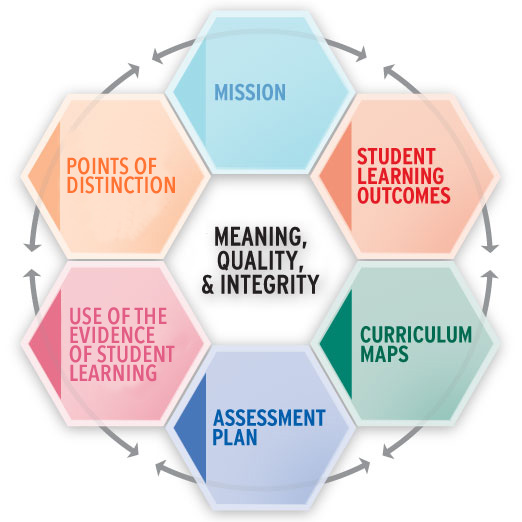The Chemistry Department examines assessment data on a regular basis to determine how well students are meeting the program learning outcomes. The attachments below describe the detailed data that we have obtained for each major.
Our first priority as an academic department is to ensure that our students are learning the essential concepts of chemistry. We use the ETS Major Field Test in Chemistry to measure the performance of our undergraduates in five major areas of Chemistry: Analytical Chemistry, Biochemistry, Inorganic Chemistry, Organic Chemistry, and Physical Chemistry. The 2015-2016 data demonstrated that our graduating senior chemistry and biology-chemistry majors had an overall average that placed them at the 53rd and 75th percentile, respectively, on this nationally normed exam. The sample sizes are small however so multi-years of data are required before any conclusions should be drawn.
We also want our students to be able to use standard instrumentation and laboratory equipment to conduct scientific experiments and perform chemical characterization and analyses. Because of this, we have designed a lab rich curriculum and many opportunities for students to gain experience with instrumentation and laboratory equipment through their roles as researchers and teaching assistants.
Another priority of our department is that our students will participate in the life of the department by involvement in research, science clubs, and/or in various positions of responsibility such as graders, tutors, stockroom workers, and/or teaching assistants. In 2015-2016, 80% of our graduating senior chemistry, 75% of our graduating biology-chemistry, and 83% of our graduating environmental-science students had participated in at least one of these activities.
Having our students gain admittance to graduate programs and careers is also a top priority. In our most recent alumni survey, 91% of our alumni were attending graduate school or employed in a Chemistry or STEM-related field. In addition, our acceptance rate of students into graduate and health professions schools continues to be at least 90%.
The recent addition of new faculty into the department has prompted a fresh look at the department’s course offerings. In reviewing student assessment data, student course evaluations, and the chemistry curricular of comparator colleges and universities, we proposed a change in the way we offer beginning courses in organic and analytical chemistry. The previous way we offered Organic Chemistry I (as a 5 unit four day a week class) was putting undue pressure on the fall semester sophomores who were majoring in chemistry, biology and biology-chemistry. We therefore changed the method of teaching the sophomore level Organic Chemistry sequence to the more traditional 4 unit Organic Chemistry I and 4 unit Organic Chemistry II model. In the process, we recognized that our half semester Analytical Chemistry course was smaller than that offered by almost all our comparator institutions. We therefore decided to enlarge Analytical to a 3 unit semester long experience. We have also changed the character and content of our Advanced Inorganic I course to include more bioinorganic topics and thereby better align the course with the needs and interests of our biology-chemistry majors for whom this course is required. In addition, this year the following changes were approved and will be implemented the next time these courses are offered. Physical Chemistry I will be changed from a 5 to 4 unit course while Physical Chemistry II will be expanded from a 2 unit quad course to a 3 unit semester course. Advanced Inorganic Chemistry will also become a 3 unit semester course instead of a 2 unit quad course. The Physical Chemistry II and Advanced Inorganic Labs will also become semester long.
